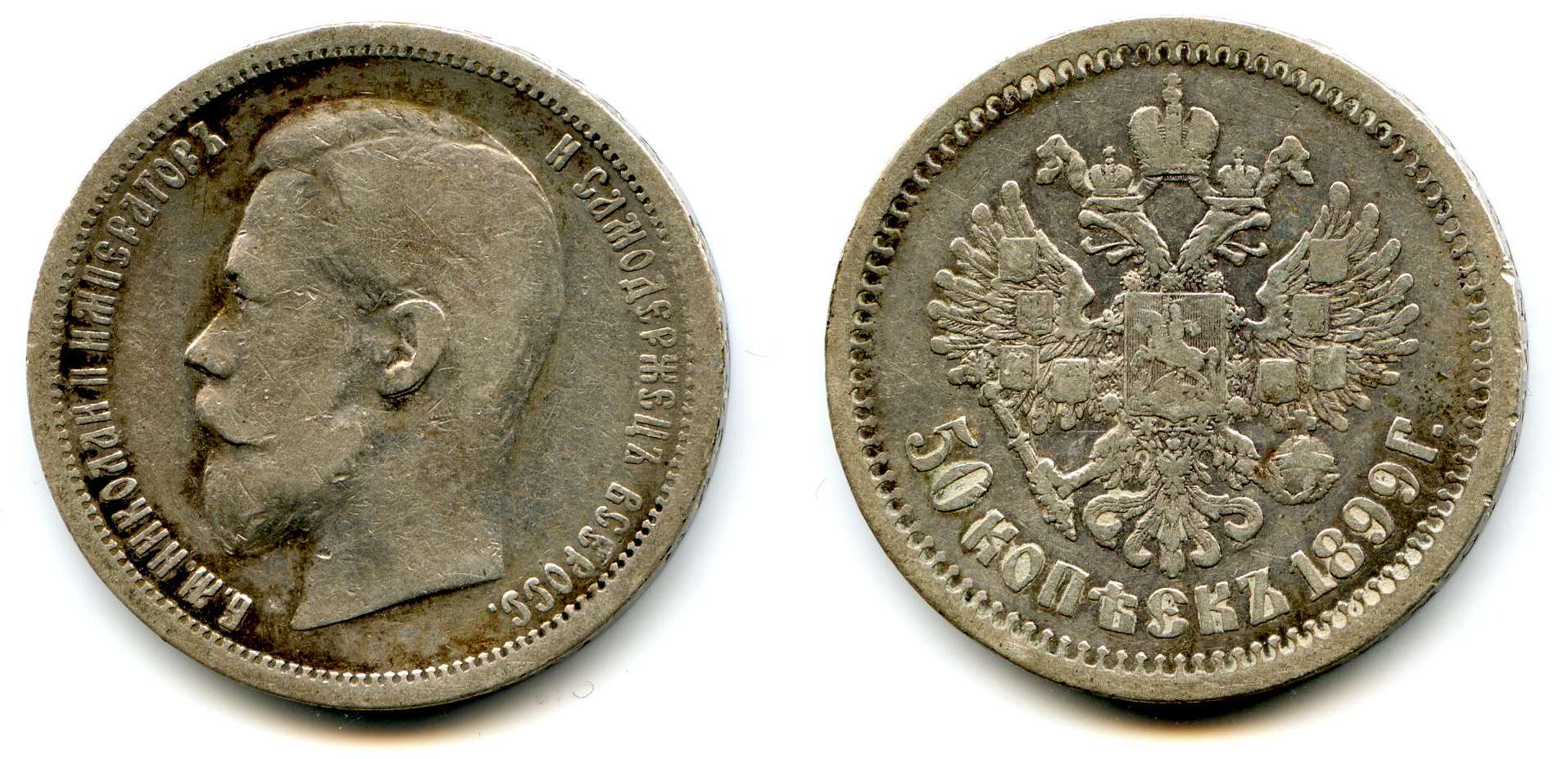Nicholas II
Tzar of Russia, 1894-1917 AD

Silver 50 Kopeks, 27 mm.
Dated 1899 A.D.
St. Petersburg mint
This coin was found in a strongbox that belonged to my grandparents, after my
grandmother died. It may have been in the pockets of a grandparent
or great-grandparent when they emigrated to the United States in the early part
of the 20th century, but I will never know for sure.
Nicholas II was the last emperor of Russia. The eldest son of Alexander III, Nicholas succeeded his father with the intention of continuing his autocratic rule but lacked Alexander's ability and strength of will. He wavered between severe repression and, in time of popular upheaval, grudging acceptance of limited reforms that he sought to withdraw after the turmoil subsided. Nicholas was a passive man and allowed Alexandra, his superstitious and strong-willed wife, and her insidious advisor, Rasputin, great sway over government policy.
Disastrous defeats in the Russo-Japanese War (1904-05) exposed the incompetence and corruption of the government. and precipitated the Russian Revolution of 1905. Nicholas promised a constitutional government with a representative Duma authorized to approve or reject all proposed laws. After revolutionary activity ebbed, however, Nicholas dissolved the first two Dumas when they showed an independent spirit, and subsequently reduced the Duma's role to that of an advisory body.
World War I proved to be Nicholas' undoing. In 1915 he took personal
command of the army, giving Alexandra and Rasputin greater power at the court.
Rumors of their unsavory activities, along with Russia's deteriorating military
and economic situation, eroded public morale. Strikes and riots erupted in the
capital and Nicholas abdicated at the Duma's demand. Exiled to western Siberia
and later the Urals region, he and his family were executed by the Bolsheviks on
the night of July 16-17, 1918.